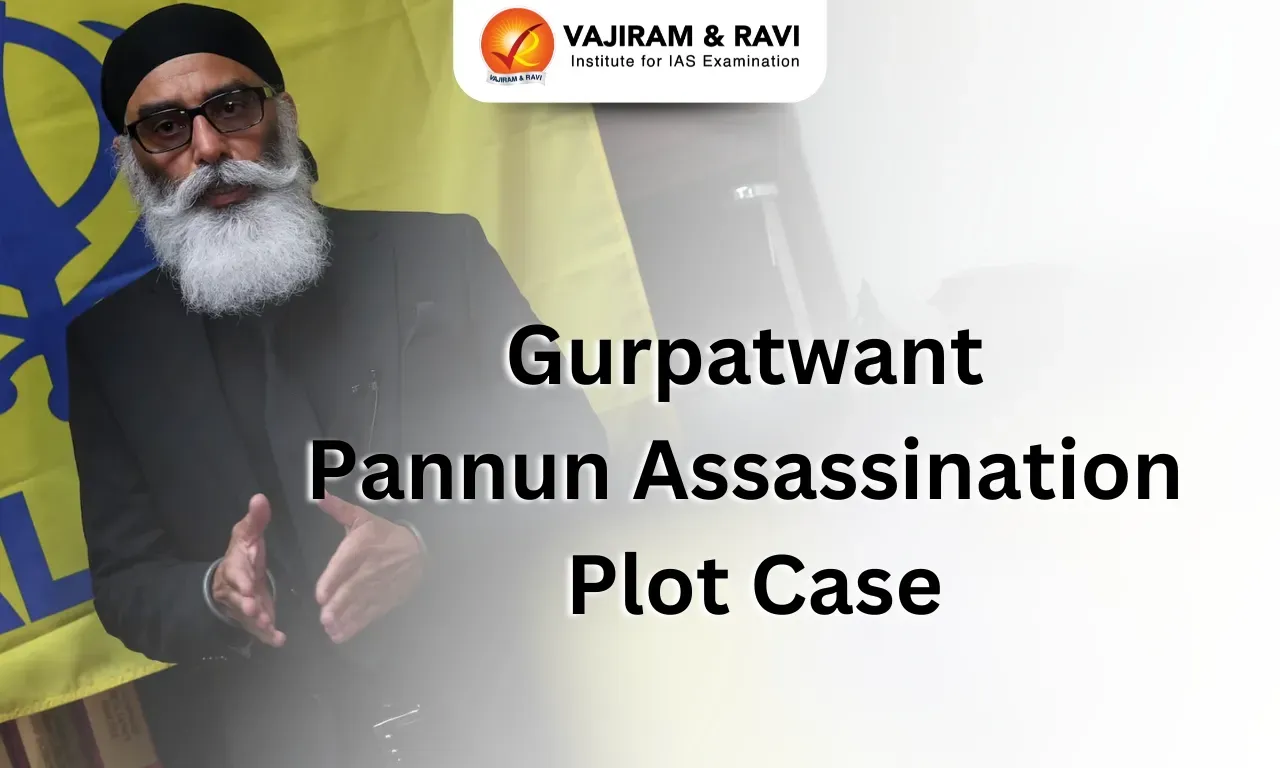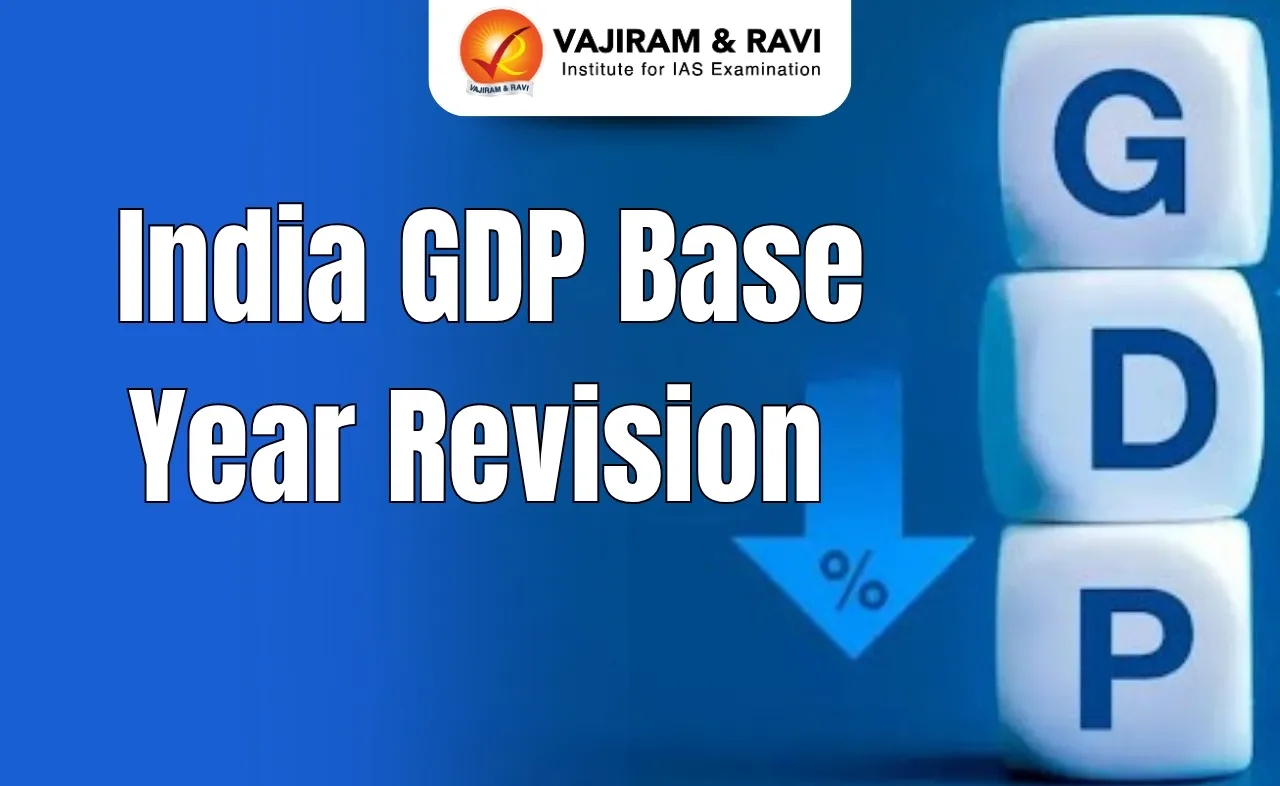What’s in Today’s Article?
- Gurpatwant Pannun Assassination Plot Case
- US Allegations and Global Context
- Strategic and Political Implications
- Conclusion
Why in News?
- The Indian government has taken steps to address allegations of an assassination plot targeting Khalistan separatist Gurpatwant Singh Pannun, based on inputs provided by the United States.
- A high-level committee set up by the Ministry of Home Affairs (MHA) investigated the case and recommended legal action against an individual, marking a critical development in the matter.
- The timing of this report is pivotal, coinciding with the transition to the Trump administration in the United States.
Gurpatwant Pannun Assassination Plot Case:
- Background of the case: The US authorities provided evidence alleging the involvement of Vikash Yadav, a former Indian official, in a plot to assassinate Pannun, a US-Canada dual citizen and leader of the banned Sikhs for Justice group.
- Formation of committee:
- The Indian government established a high-powered committee to probe the matter, investigate leads, and ensure due process.
- The committee conducted independent inquiries.
- Collaborated with US authorities, exchanging visits and scrutinizing evidence.
- Key findings of the committee:
- The committee identified criminal links and antecedents of the implicated individual.
- Recommended expeditious legal action against the accused.
- Proposed systemic and procedural improvements to prevent similar incidents.
US Allegations and Global Context:
- US indictment:
- Vikash Yadav, along with another Indian national, Nikhil Gupta, was implicated in a plot to pay an assassin $100,000 to kill Pannun in New York.
- Gupta was detained in Prague and later extradited to the US.
- Yadav, no longer a government employee, faced legal challenges in India, including an extortion case.
- Broader implications:
- The revelations followed Canadian Prime Minister Justin Trudeau’s earlier accusations against Indian officials in the killing of Hardeep Singh Nijjar, another Khalistan separatist.
- India rejected Trudeau’s claims but responded seriously to US allegations, signaling a different approach.
Strategic and Political Implications:
- Maintaining bilateral relations:
- India’s timing of the report and its clean-slate approach aims to strengthen ties with the incoming US administration under Donald Trump.
- Meetings with outgoing and incoming US National Security Advisors emphasize India’s intent to insulate future engagements from past incidents.
- Commitment to due process:
- The extensive investigation underscores India’s adherence to procedural fairness.
- By highlighting the accused as a rogue element, the government distances itself from the individual’s actions.
- Response to accountability demands:
- The committee’s recommendations for systemic reforms signal India’s commitment to transparency and accountability.
- Steps to enhance control mechanisms and coordinated responses aim to prevent recurrence.
- Prioritizing Indian legal jurisdiction:
- The committee’s recommendation for expeditious legal action within India preempts any US attempts to extradite or try Yadav in American courts.
- This move asserts India’s sovereignty over its legal proceedings.
- Canada relations: The report’s release provides an opportunity for future Canadian leadership to rebuild ties strained over allegations against India.
Conclusion:
- The Indian government’s measured response to the Pannun assassination plot reflects its focus on balancing international relations, ensuring legal accountability, and upholding due process.
- By addressing systemic gaps and strengthening procedural safeguards, India aims to navigate the complex geopolitical dynamics while maintaining its global credibility.
Q.1. What led to the worsening of India-Canada bilateral relations?
India-Canada relations worsened after Canadian Prime Minister Justin Trudeau accused Indian agents of being involved in the killing of Khalistan separatist Hardeep Singh Nijjar, a claim India dismissed as baseless and politically motivated.
Q.2. What threats pro-Khalistani separatists pose to India’s national security?
Pro-Khalistani separatists pose significant threats to India’s national security by advocating for the secession of Punjab to establish an independent Khalistan, thereby challenging the country’s territorial integrity.
Last updated on June, 2025
→ UPSC Notification 2025 was released on 22nd January 2025.
→ UPSC Prelims Result 2025 is out now for the CSE held on 25 May 2025.
→ UPSC Prelims Question Paper 2025 and Unofficial Prelims Answer Key 2025 are available now.
→ UPSC Calendar 2026 is released on 15th May, 2025.
→ The UPSC Vacancy 2025 were released 1129, out of which 979 were for UPSC CSE and remaining 150 are for UPSC IFoS.
→ UPSC Mains 2025 will be conducted on 22nd August 2025.
→ UPSC Prelims 2026 will be conducted on 24th May, 2026 & UPSC Mains 2026 will be conducted on 21st August 2026.
→ The UPSC Selection Process is of 3 stages-Prelims, Mains and Interview.
→ UPSC Result 2024 is released with latest UPSC Marksheet 2024. Check Now!
→ UPSC Toppers List 2024 is released now. Shakti Dubey is UPSC AIR 1 2024 Topper.
→ Also check Best IAS Coaching in Delhi
























